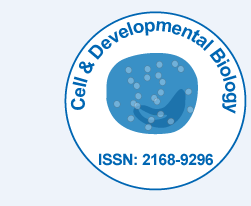
Cell & Developmental Biology
Open Access
ISSN: 2168-9296

ISSN: 2168-9296
Review - (2021)
A debate between conservative thinker William F. Buckley, Jr. and leftist writer Gore Vidal took place in 1968. It was hoped that these two members of opposing intellectual elites would demonstrate to Americans living in turbulent times that political differences could be civilised. That notion did not endure long. Buckley and Vidal, on the other hand, quickly fell into name-calling. Following that, they filed defamation lawsuits against each other [1].
The amygdalae, a region in the temporal lobes involved in memory acquisition, consolidation, and processing, as well as positive and negative conditioning, were found to be larger in students who expressed more conservative political views (emotional learning).The amygdala plays crucial roles in social interaction, such as recognising emotional cues in facial expressions and managing personal space, with larger and more complex social networks associated with larger and more complex amygdalae. It's also thought to be involved in danger sensing, as well as the regulation of fear and aggression in response to perceived threats. For years, psychologists and sociologists have wondered what psychological or environmental factors impact people's political views. Although it is usually considered that political beliefs are primarily influenced by the environment, current research has begun to show biological implications on one's political orientation. A twin research, for example, found that genetic effects account for a significant portion of the variation in political ideology. Furthermore, social environment interacts with genetic factors. For example, an interaction between a variation of a dopamine receptor gene associated to novelty seeking and an environmental component of friendship influences political inclination in early adulthood. These interplay between heredity, environment, and political phenotype, we argued, may be reflected in brain structure [2,3].
Recent research have found that liberals have a larger and/or more active anterior cingulate cortex, or ACC, which is involved in detecting and judging conflict and error, while conservatives have an enlarged amygdala, which is involved in the generation and storage of emotional memories. These findings have been seen in other studies, which is why I thought it was worth looking into. The idea that liberals and conservatives vary genetically or neurologically is a heated topic of dispute. Chris has already covered a lot of stuff on this site. As a result, these converging studies have been heavily criticised – the techniques, types of people, error bars, design faults, sample size, and so on, ad nauseam, ad infinitum. However, new research continues to demonstrate the same tendency, so I believe we should be thinking a little more about what this all means in the larger picture at this point. The idea that liberals and conservatives vary genetically or neurologically is a heated topic of dispute. Chris has already covered a lot of stuff on this site. As a result, these converging studies have been heavily criticised the techniques, types of people, error bars, and design faults, sample size, and so on, ad nauseam, ad infinitum. However, new research continues to demonstrate the same tendency, so I believe we should be thinking a little more about what this all means in the larger picture at this point [4].
The first and most obvious issue is: What does it mean to be liberal or conservative? As a country, we have had wars, big financial crises, and human rights revolutions, and during each of these significant historical events, the liberal and conservative parties' main ideals or prominent concerns appear to shift slightly. As a result, saying that a liberal 50 years ago looks the same as a liberal now is inaccurate. So, can we truly say there's a liberal or conservative "thinking style" when the issues that matter most too each party are always changing? Actually, I believe we will be able to. It is the thinking style, not the specific issue that characterises the thinking style [5].
Citation: Fen C (2021). Some Real Differences between Conservative and Liberal Brains. Cell Dev Biol.10:240
Received: 09-Sep-2021 Accepted: 23-Sep-2021 Published: 30-Sep-2021 , DOI: 10.35248/2168-9296.21.s1.240
Copyright: © 2021 Fen C. This is an open-access article distributed under the terms of the Creative Commons Attribution License, which permits unrestricted use, distribution, and reproduction in any medium, provided the original author and source are credited.